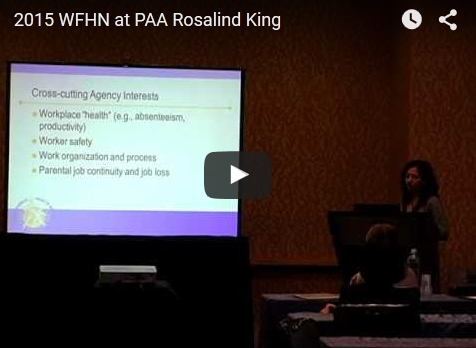
The Work, Family & Health Network (WFHN) is a transdisciplinary research effort created by the National Institutes of Health (NIH) and the Centers for Disease Control and Prevention (CDC) designed to enhance the understanding of the impact of workplace practices and policies on work, family life, and health outcomes.
The Work, Family & Health Study (WFHS) is a group-randomized field experiment which took place at two employers representing different industries. The information technology division of a Fortune 500 company (pseudonym: Tomo) had 56 study groups with 7-60 employees each, and the extended-care company (pseudonym: Leef) had 30 work sites of 30-89 employees each. Tomo study groups and Leef worksites were randomly assigned to intervention or usual practice (UP) conditions.
The multi-faceted intervention was designed to increase:
- supervisor and coworker support for work-family integration
- employees’ perception of control over their work time.
All employee and manager participants were assessed at baseline, and at 6-, 12-, and 18-months post baseline. A wide range of measures were collected, including respondents' social, economic, psychological and physical well-being.
Available WFHN Data
- The questions used in these surveys, as well as a MOP and codebook (data documentation) are available here.
- A public-use dataset that reflects the results of these measures is freely available through ICPSR.
- An extensive, restricted-use dataset is available to researchers who complete the data application and whose project has been approved.

